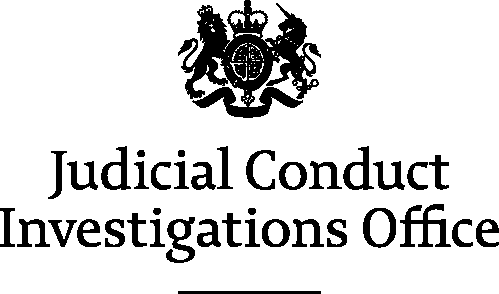


JCIO 29/24
Date: 11 June 2024
A spokesperson for the Judicial Conduct Investigations Office said:
The Lady Chief Justice, with the Lord Chancellor’s agreement, has issued Deputy Senior District Judge Tanweer Ikram CBE with a formal warning for misconduct.
Facts
The Guide to Judicial Conduct prohibits political activity by salaried judges and cautions judges about the risks of participation in public debate. Social Media Guidance for the judiciary also cautions against activity which could undermine public confidence in judicial impartiality. Additionally, the Social Media Guidance warns judges:
“You should not use your official title and it is most unlikely to be appropriate to disclose the fact of your judicial role on any platform or account with unrestricted public access. This is of course public domain information, but it does not follow that it is appropriate to refer to it on your private social media profile.”
On 14 February, an article appeared in The Times stating that Judge Ikram had “liked” a post by a barrister on LinkedIn, which read:
“Free Free Palestine. To the Israeli terrorist both in the United Kingdom, the United States and of course Israel, you can run, you can bomb but you cannot hide – justice will be coming for you.”
Other newspapers also published reports about the issue.
On 15 February, Judge Ikram referred himself to the Judicial Conduct Investigations Office (JCIO) stating that he had inadvertently “liked” the post. The JCIO subsequently received more than 60 complaints about the issue. Some of those complaints were rejected following initial assessment by the JCIO because they did not comply with the requirements of the Judicial Conduct Rules 2023. A total of 43 complaints were referred to a nominated judge for further consideration.
Judge Ikram’s representations
In his representations during the investigation, Judge Ikram accepted that inadvertently ‘liking’ the post had raised concerns about his impartiality. He also accepted that he had not familiarised himself with the latest guidance for judges on social media use. However, he stressed that he had not intended to ‘like’ the post, describing it as “repulsive.”
He stated that when he became aware of the article, he had done all he could to mitigate the impact of inadvertently ‘liking’ the post. This included contacting the Judicial Office Press Office. The judge also closed his LinkedIn account, which he had primarily used for his work as a Diversity and Community Relations judge.
In support of his representations, Judge Ikram provided a technical report which he had commissioned. The report confirmed that he had no direct social media connection with the poster of the comment. The report also stated that it was “abundantly simple” for a LinkedIn user to inadvertently trigger a ‘like’ using their iPhone, by double-tapping an image.
Nominated judge’s findings
The nominated judge found that Judge Ikram had breached the Social Media Guidance for the judiciary by identifying himself as a judge on LinkedIn. However, she also noted that his posts primarily demonstrated his connection to his diversity work. There were no other inappropriate posts or ‘likes.’ The nominated judge concluded that while Judge Ikram had commissioned the technical report, its contents were objective and supported his assertion that he had triggered a ‘like’ accidentally.
The nominated judge concluded that the inadvertent ‘liking’ of the post had resulted in a perception of bias. This was demonstrated by the fact that a link had been inferred between this issue and a case heard by Judge Ikram, which involved pro-Palestinian protestors. The risk of undermining public confidence had been heightened by the fact that he had identified himself on social media as a judge.
For this reason, while determining that ‘liking’ the post was not deliberate or the result of carelessness, the nominated judge considered that the judge’s actions amounted to misconduct. In recommending a sanction of formal advice, the nominated judge acknowledged that Judge Ikram had taken full responsibility and shown genuine remorse. She also acknowledged that he has been at the forefront of work to promote judicial diversity.
Decision
After careful consideration, the Lord Chancellor and the Lady Chief Justice were not satisfied that a sanction of formal advice was sufficient in this case. They therefore agreed to issue Judge Ikram with a formal warning. In reaching their decision, they took into consideration that, in addition to having breached the guidance on social media use, the judge’s actions caused significant reputational damage to the judiciary, as evidenced by the extraordinary number of complaints made to the JCIO. They also considered it important for their decision to underline their shared view on the seriousness of misuse of social media by judges.
Media queries in relation to the JCIO should be made in the first instance to the Judicial Press Office - telephone 020 7073 4852 or via email - press.enquiries@judiciary.gsi.gov.uk
Sanctions for misconduct by judicial office-holders are set out in the Constitutional Reform Act 2005. They are, in order of severity: formal advice, formal warning, reprimand and removal from office.
For more information about the Office, including details on how to make a complaint against a judicial office holder, you can visit the JCIO website at: Judicial Conduct Investigations website